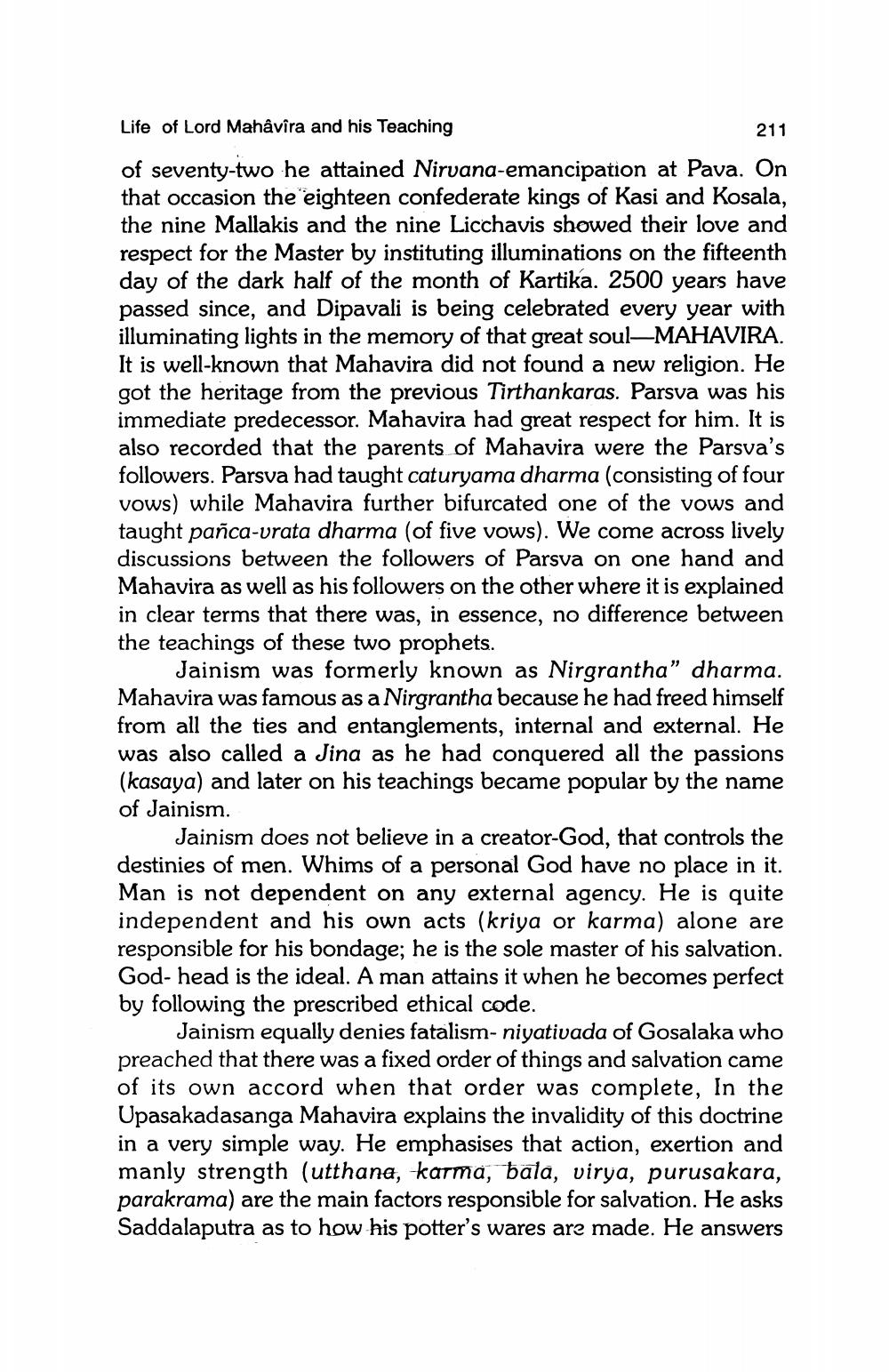________________
Life of Lord Mahâvîra and his Teaching
211
of seventy-two he attained Nirvana-emancipation at Pava. On that occasion the eighteen confederate kings of Kasi and Kosala, the nine Mallakis and the nine Licchavis showed their love and respect for the Master by instituting illuminations on the fifteenth day of the dark half of the month of Kartika. 2500 years have passed since, and Dipavali is being celebrated every year with illuminating lights in the memory of that great soul—MAHAVIRA. It is well-known that Mahavira did not found a new religion. He got the heritage from the previous Tirthankaras. Parsva was his immediate predecessor. Mahavira had great respect for him. It is also recorded that the parents of Mahavira were the Parsva's followers. Parsva had taught caturyama dharma (consisting of four vows) while Mahavira further bifurcated one of the vows and taught pañca-vrata dharma (of five vows). We come across lively discussions between the followers of Parsva on one hand and Mahavira as well as his followers on the other where it is explained in clear terms that there was, in essence, no difference between the teachings of these two prophets.
Jainism was formerly known as Nirgrantha" dharma. Mahavira was famous as a Nirgrantha because he had freed himself from all the ties and entanglements, internal and external. He was also called a Jina as he had conquered all the passions (kasaya) and later on his teachings became popular by the name of Jainism.
Jainism does not believe in a creator-God, that controls the destinies of men. Whims of a personal God have no place in it. Man is not dependent on any external agency. He is quite independent and his own acts (kriya or karma) alone are responsible for his bondage; he is the sole master of his salvation. God-head is the ideal. A man attains it when he becomes perfect by following the prescribed ethical code.
Jainism equally denies fatalism-niyativada of Gosalaka who preached that there was a fixed order of things and salvation came of its own accord when that order was complete, In the Upasakadasanga Mahavira explains the invalidity of this doctrine in a very simple way. He emphasises that action, exertion and manly strength (utthana, karma, bala, virya, purusakara, parakrama) are the main factors responsible for salvation. He asks Saddalaputra as to how his potter's wares are made. He answers




